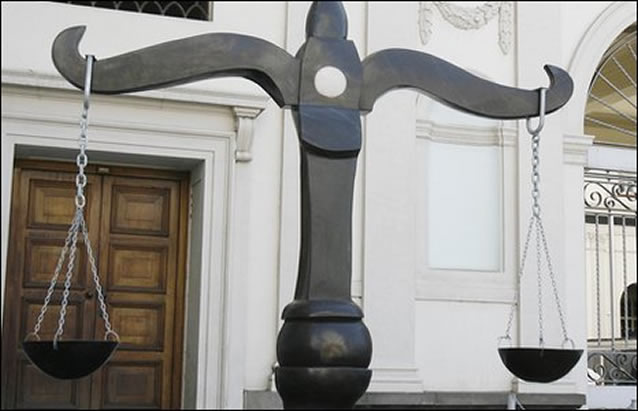EDITORIAL COMMENT: Mujuru plotting own political downfall

Joice Mujuru, fired from her position as vice-president of Zanu-PF and the government in December 2014, officially entered opposition politics on Tuesday, days after she had registered her Zimbabwe People First.
It was only a matter of when, not if, for her to take that action as she and those who were sacked from the ruling party like her had been making statements to the media to that effect. She launched the Zimbabwe People First’s economic plan a few months ago, a sure indication that she indeed was on course to what we witnessed on Tuesday.
Opposition politics is unfamiliar territory for her and her colleagues, former ministers Didymus Mutasa, Rugare Gumbo, Sylvester Nguni, Bright Matonga, Kudakwashe Bhasikiti and Dzikamai Mavhaire who are still angry that they were fired from the ruling party. They were accused of seeking to remove President Mugabe by illegal means and working with hostile foreign powers to accomplish that now-abortive mission. They vehemently reject the charges.
The statement she made on Tuesday lays down her vision on how she seeks to gain power and what her government would do thereafter.
In short, it defines her political career. To us, it is an important statement that we will not hesitate to use as a legitimate basis to judge her straight away and as time goes on.
She recites the old opposition themes that are sure to anger the electorate – promising to reverse the indigenisation drive and the land reforms of which she and her cabal are beneficiaries. She also mentioned an absence of rule of law, selective application of the law, incoherent investment policies, and purported government shortcomings in reversing the economic decline, ignoring the self-evident adverse impact of illegal western sanctions on the country.
“Today is a historic day,” she said. “Today we present ourselves to you in humility and the humbling comfort of the people’s support.
There has been tense speculation from our detractors. There has been strong anticipation from our supporters. We had to resist temptation, the temptation to formalise our being and existence without adequate consultation with the people of Zimbabwe.
“This is a day of great significance in our country’s political history. Today we confirm our existence or the existence of a viable homegrown inclusive political party. It is now public knowledge that the Zimbabwe People First is here.”
On investment she said:
“The investment environment is crowded by multiple incoherent policies. Zimbabwe urgently needs investor friendly policies to stimulate economic activity. The scourge of corruption will need to be totally uprooted. There is urgent need to create jobs for the huge growing army of unemployed and hopeless people out there; a whole review of the indigenisation act would be effected. We shall emphasise economic empowerment that attracts investment.”
To us, it is strange for a person who contributed to the running of this country as the second-in-charge to the President to utter some statements she did.
Mujuru served Zanu-PF and the country as minister in various portfolios and in the politburo and lastly as vice-president for a good 34 years. She was quiet on these issues that she suddenly throws around as legitimate criticisms to level against the same party and government she contributed to lead for three-and-a-half decades.
It is rank hypocrisy for anyone to make the negative comments and at the same time, want the electorate to take you as electable.
Any leader – and she is one of them – who secures the right to govern and thinks he or she can reverse the land reforms and the indigenisation programme would be courting disaster and their own political downfall. Zimbabweans want their land and a meaningful role in the exploitation of their resources thus will never countenance a place on the margins of their land and economy while foreigners own and enjoy themselves on them.
In that connection, we don’t know how she intends to review the indigenisation law without repealing it. We argue this because the government was alert to a few areas that concerned some foreign investors. They have been addressed already without negating the law.
At the same time, the Indigenisation and Economic Empowerment Act that was promulgated when Mujuru was still in office gives the responsible minister authority to waive some of its provisions on certain investments.
Corruption is a national problem and every Zimbabwean wants it contained. Mujuru spoke against the vice. There is nothing wrong with that but we demand that she comes clear on the many allegations of corruption that were levelled against her just before and after her sacking.
By and large Mujuru regurgitated the old opposition mantra that everyone knows and knows to be empty propaganda. It is worse when it comes from an embittered figure who benefited from a system that she, all of a sudden, thinks was wrong all along. It could have been more useful and legitimate if she had spoken out between 1980 and December 2014.








Comments